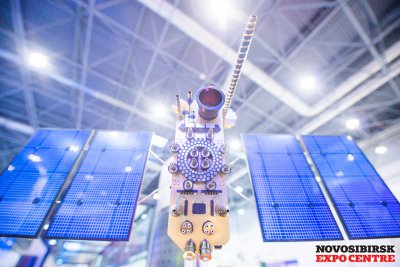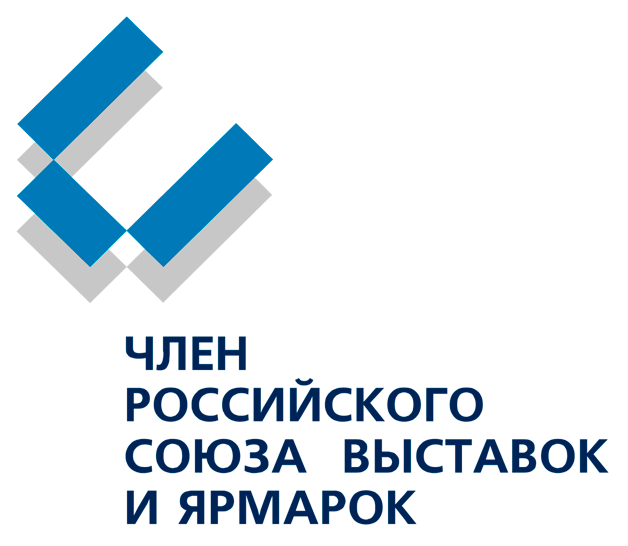The Technological Development of Russia Will be Ensured by the Course Towards ‘Total Import Substitution’

Novosibirsk is again hosting the International Forum of Technological Development ‘Technoprom - 2014’. For two days representatives of the scientific community, authorities, and journalists were looking for solutions that would ensure the leadership of the Russian economy. The Forum was attended by Deputy Chairman of the Russian Federation Government Dmitry Rogozin. During his speech he noted that Russia is expecting a technological breakthrough. That is largely conditioned by the complicated political situation in the world.
‘I’m absolutely certain that we are expecting a technological breakthrough. Today the USA openly speak about their policy of restraining technological growth of Russia. I believe that this policy will lead to a reverse effect. No one will ever achieve technological isolation of our country and take away the opportunities of industrial and technological collaboration with other states. It actually contradicts the national character of Russian people. The more actively somebody tries to hinder us from doing something, the more we want to do it’, said Dmitry Rogozin. According to Rogozin, in the environment of new geopolitical reality Russia is able to partner with BRICS countries in industrial sphere. The Russian Federation Vice-Prime Minister thinks their mentality is similar to that of Russia. The Russian Government is currently developing mechanisms of interaction with China as part of three projects: the construction of a passenger airplane, upgrade of the war helicopter Mi-24, as well as interaction in the development of navigation systems. There are also similar collaboration plans regarding India.
However, Dmitry Rogozin noted, that there are currently several problems that can hinder technological development of Russia. To be more specific: underevaluation of resources that can be used for performing technological tasks; absence of transfer and localization of foreign technologies, as well as shortcomings of thefinancial system. In order to confirm his statement Rogozin gave a few examples. Fifty billion rubles were invested into research work aimed at developing ship-construction technologies but there is no infrastructure for ship construction. Within the last 10 years investments into radioelectronic industry increased 100-fold, however the ratio of electronic equipment manufactured in Russia to foreign products being imported from abroad remained unchanged. Absolute majority (95%) of air transportation in Russia is performed using foreign airplanes. State-owned enterprises have to take credits at state-owned banks in order to fulfill government contracts, with interest rates not less than 12%.
Dmitry Rogozin thinks that an optimumsolution in the current situationwill be the course towards ‘total import substitution’. The goal of this program is occupying the internal markets of Russia.
'The plan of substituting imported products supplied to the Russian market by Ukraine will soon be adopted on the presidential level. There’s no need to squeeze into a small hole called ‘Western Europe’. We will not fit in anyway,' Rogozin stated. The Russian Federation Deputy Minister of Industry and Trade Yury Slyusar agreed with Dmitry Rogozin and noted that the problems in the financial sector that block technological growth are currently being solved. Among other things, the task of creating a special fund with capital assets of 55 billion rubles is currently being considered. The fund is aimed at solving the problem of providing credits to industrial enterprises that fulfill governmental contracts.
'Technoprom - 2014' Forum ended in the roundtable discussion ‘Technological Sovereignity of Russia: Challenges and Solutions’ held with the support from the Russian Federation Government Experts’ Council of the Military and Industrial Commission Chairman. Participants of the discussion spoke about ways to attain technological independence of Russia under the conditions of economic sanctions and the ban on transfer of technologies.
Deputy Chief Academic Secretary of the Russian Academy of Sciences General Committee Vladimir Ivanov raised a question about financing science in Russia. In the scientist’s opinion, the financing of science in Russia is far lower than the financing in the USA, Japan, and some countries of the European Union.
'In order to ensure competitiveness of our science, we need to attain a tenfold increase of financing and keep maintaining it at this level for about a decade. Only then will we be able to achieve modern level of resource provision', thinks Vladimir Ivanov. General Director of ESTO Research Institute and Chairman of the Residents’ Committee of SEZ ‘Zelenograd’ Dmitry Saprykin said during his speech that that the share of import substitution in Russia is currently almost 90%. Compare – in times of the Russian Empire this indicator was equal to 50% and in the Soviet Union – only 15%.
Dmitry Rogozin noted that it is necessary to create new technologies and products when solving the task of import substitution in Russia, instead of just copying methods used by the others.
The 2nd International Forum of Technological Development ‘Technoprom - 2014’ also included the signing of the cooperation agreement between the Siberian Department of the Russian Academy of Sciences and the Advanced Research Fund. The agreement implies mutually profitable collaboration between the SD RAS and the Fund aimed at searching, selecting, and implementing research and technical projects in the sphere of defense and state security. The agreement also includes creating a new generation of materials for control systems, developing precision laser systems, nano-biotechnologies, intelligent information systems, and other research areas aimed at maintaining security of the country.
Back




